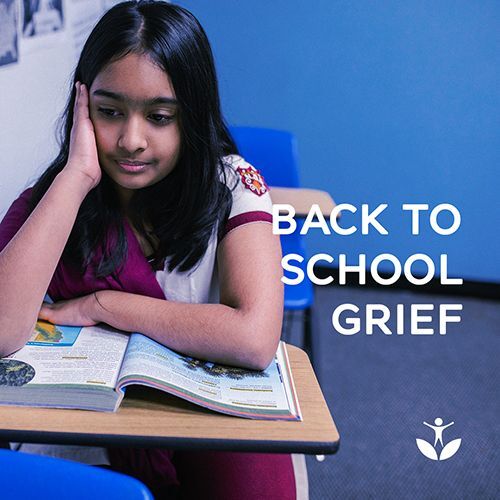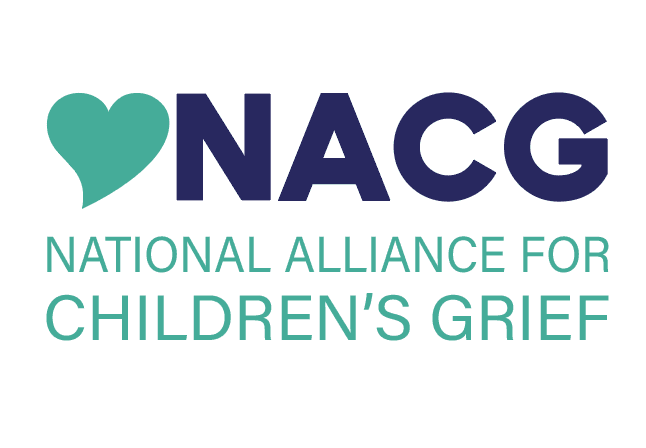
The beginning of a new school year can be stressful and overwhelming for children, families, teachers, and counselors. In the event of the loss of a loved one, processing one’s grief while also returning back to school can add to an already challenging time. For many grieving children, the return to school following the loss of a loved one is very difficult, and support is needed at this time. Below, we provide some tips and strategies as to how you can support a grieving child as they return to school.
Validating Emotions – Grief can lead to varied and complicated emotions for children and teens expressed in different ways. Validating these emotions and acknowledging that they come from a place of mourning can help children feel supported during this time. This may mean having more of a listening ear, taking into account aspects of non-verbal communication that may show moments of distress, and maintaining an ongoing conversation between parents, teachers, and counselors about a child’s needs. Keep in mind that children may not want to speak about their feelings in the moment. If that is the case, it is best to not push the conversation and, instead, let them know that you are available to listen and be there for them when they are ready to talk.
Creating Structure and Routine – For grieving children, providing consistent structure and routine in their day-to-day activities is incredibly beneficial. With the death of a loved one, there is already enough change to adapt to. By providing a degree of consistency and predictability, grieving children can have the emotional space to process their feelings of loss without becoming overwhelmed by other changes in their daily routine. Some examples of structure and routine could include: (1) providing set drop off and pick up times after school, (2) having a sit-down dinner together as a family on specific days of the week, and (3) having a set bedtime (note: this recommendation is better suited for elementary-aged children).
Problem Solving “What If” Scenarios – For grieving children, the return to school is one of the more stressful transitions that they will encounter following a loss of their loved one. Children are typically filled with worries and “what if” questions about returning to school such as “What if I feel like I’m going to cry in the middle of class?” or “What if I need to talk to my mother/father/parent during the school day?” By problem solving these questions ahead of time and working with the school teachers and administration to create solutions to these concerns, children will feel more prepared to start attending school again. It is also useful to engage the child in developing solutions to their concerns so that they feel a sense of agency over their own grief.
Acknowledge the Need for Support – Consistent support is one of the most important things we can provide for a grieving individual. Children, in particular, can benefit from various forms of support during their grief, including support from their immediate family, school setting, and peers. Ensuring that children are provided with support in all of these aspects of their life can be a protective factor against the development of complicated grief and mental health concerns. For middle school and high school aged children, peer support may be difficult to obtain as peers may not know how to provide support to their grieving friend. The grieving teen may also feel a sense of embarrassment for having gone through a loss and not speak about it to their friends. In these situations, a peer grief support group, such as those provided by the Children’s Bereavement Center, can be a valuable resource at this time. In our age-specific groups, children and teens can have the opportunity to connect with other peers of similar ages who are also grieving the loss of a loved one and obtain support that is so necessary at this time.
Grief and You – A new school year means more time and energy dedicated to a child and their education. Whether you are a grieving parent or school professional with the intention to support grieving families, it is important to understand your own experience with grief. Just as children need space for their grief, so do parents. There is no shame in seeking out support for oneself and creating space to heal, and for some parents, this is crucial. For teachers and counselors, exploring your experience with loss and reactions to grief can help you gain personal insight and identify areas of potential growth to become a better source of support to grieving students.
These a few suggestions on how to manage transitioning into this new school year for families after a death. Try to be open to exploring different resources that are available to help you better understand and process grief.
The Children's Bereavement Center “CBC” is a 501(c)(3) nonprofit organization providing FREE grief support groups for all ages (4+). Lift From Loss® is a division of CBC providing support for young adults and adults. For additional resources, visit our website at www.childbereavement.org. To register for our free virtual grief support groups, call us at (888) 988-5438 or e-mail support@childbereavement.org.








